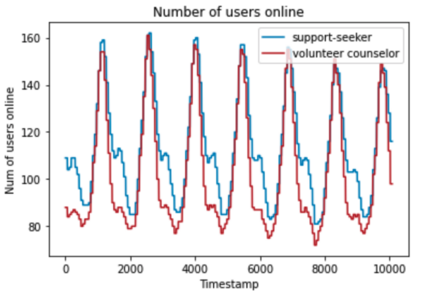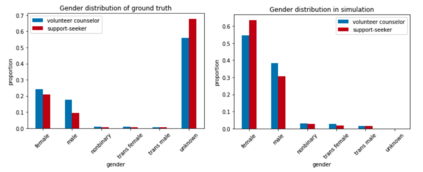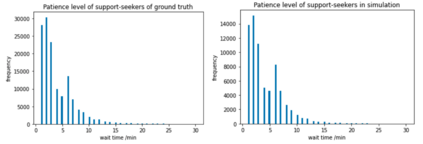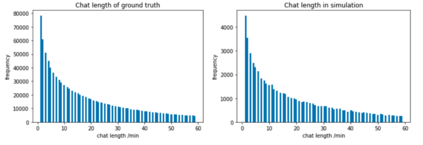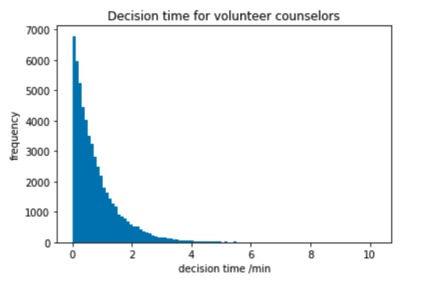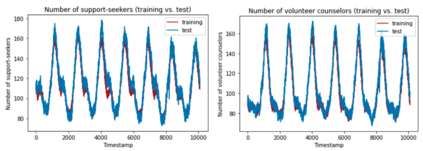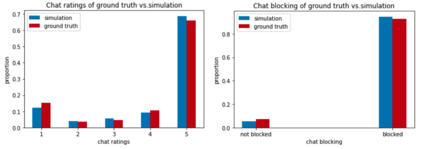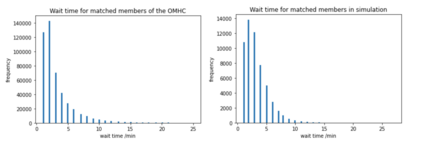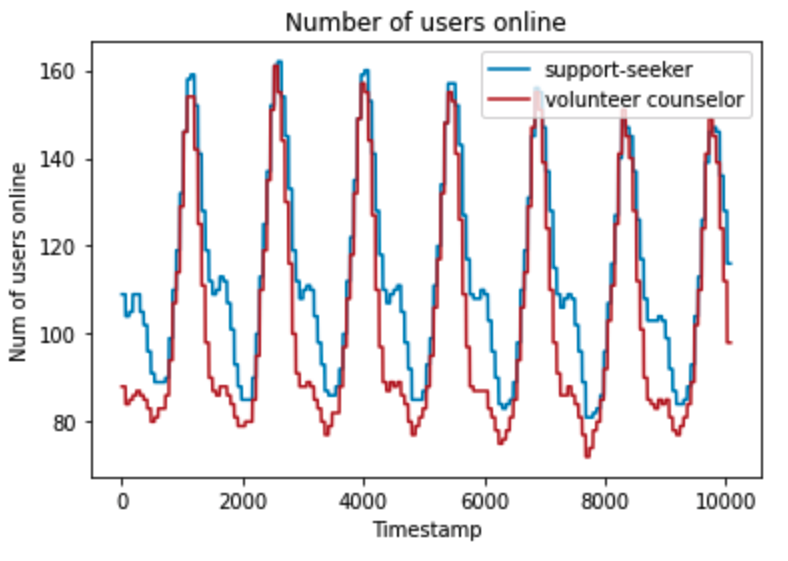Online mental health communities (OMHCs) are an effective and accessible channel to give and receive social support for individuals with mental and emotional issues. However, a key challenge on these platforms is finding suitable partners to interact with given that mechanisms to match users are currently underdeveloped. In this paper, we collaborate with one of the world's largest OMHC to develop an agent-based simulation framework and explore the trade-offs in different matching algorithms. The simulation framework allows us to compare current mechanisms and new algorithmic matching policies on the platform, and observe their differing effects on a variety of outcome metrics. Our findings include that usage of the deferred-acceptance algorithm can significantly better the experiences of support-seekers in one-on-one chats while maintaining low waiting time. We note key design considerations that agent-based modeling reveals in the OMHC context, including the potential benefits of algorithmic matching on marginalized communities.
翻译:在线心理健康社区(OMHC)是为精神和情感问题患者提供有效和易于使用的社交支持的渠道。然而,在这些平台上的一个关键挑战是找到合适的伙伴进行交流,因为目前匹配用户的机制相对不发达。在本文中,我们与全球最大的OMHC之一合作,开发了一个基于代理人仿真的框架,探讨了不同匹配算法的权衡。仿真框架使我们可以比较平台上当前机制和新的算法匹配策略,并观察它们对各种结果指标的不同影响。我们的研究发现,使用延迟接受算法可以显著改善一对一聊天中支持寻求者的体验,同时保持较低的等待时间。我们指出,代理人模型揭示的OMHC上的关键设计考虑因素包括算法匹配对边缘群体的潜在益处。

